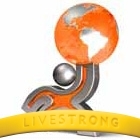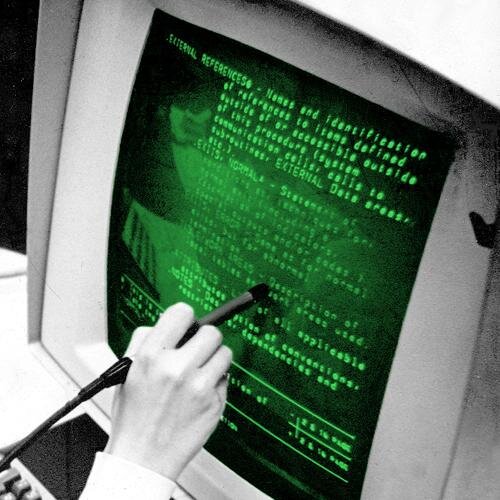But oh how we
have strayed, sisters and brothers...
a.
How did we let conversation get weaponized,
anyway?
33
It's important to notice and cherish the talk, the friendship,
the thousand acts of sympathy, kindness, and joy we encounter on
the Internet.
34
And yet we hear the words "fag" and "nigger" far more on the Net
than off.
35
Demonization of 'them' — people with looks, languages, opinions,
memberships and other groupings we don't understand, like, or
tolerate — is worse than ever on the Internet.
37
Hatred is present on the Net because it's present in the world,
but the Net makes it easier to express and to hear.
38
The solution: If we had a solution, we wouldn't be bothering you
with all these damn clues.
39
We can say this much: Hatred didn't call the Net into being, but
it's holding the Net — and us — back.
40
Let's at least acknowledge that the Net has values implicit in
it. Human values.
41
Viewed coldly the Net is just technology. But it's populated by
creatures who are warm with what they care about: their lives,
their friends, the world we share.
42
The Net offers us a common place where we can be who we are, with others who delight in our
differences.
43
No one owns that place. Everybody
can use it. Anyone can improve
it.
44
That's what an open Internet is. Wars have been fought for less.
b.
"We agree about everything. I find you fascinating!"
45
The world is spread out before us like a buffet, and yet we stick
with our steak and potatoes, lamb and hummus, fish and rice, or
whatever.
46
We do this in part because conversation requires a common
ground: shared language, interests, norms, understandings.
Without those, it's hard or even impossible to have a
conversation.
47
Shared grounds spawn tribes. The Earth's solid ground kept tribes at a
distance, enabling them to develop rich differences. Rejoice!
Tribes give rise to Us vs. Them and war. Rejoice? Not so much.
48
On the Internet, the distance between tribes starts at zero.
49
Apparently knowing how to find one another interesting is not as
easy as it looks.
50
That's a challenge we can meet by being open, sympathetic, and
patient. We can do it, team! We're #1! We're #1!
51
Being welcoming: There's a value the Net needs to learn from the
best of our real world cultures.
c.
Marketing still makes it harder to talk.
52
We were right the first
time: Markets are conversations.
53 A conversation isn't your business tugging at our sleeve to shill a product we don't want to hear about.
54 if we want to know the truth about your products, we'll find out from one another.
55 We understand that these conversations are incredibly valuable to you. Too bad. They're ours.
56 You're welcome to join our conversation, but only if you tell us who you work for, and if you can speak for yourself and as yourself.
57 Every time you call us "consumers" we feel like cows looking up the word "meat."
58 Quit fracking our lives to extract data that's none of your business and that your machines misinterpret.
59
Don't worry: we'll tell you when we're in the market for
something. In our own way. Not yours. Trust us: this
will be good for you.
60
Ads that sound human but come from your marketing department's
irritable bowels, stain the fabric of the Web.
61
When personalizing something is creepy, it's a pretty good
indication that you don't understand what it means to be a
person.
62
Personal is human. Personalized isn't.
63
The more machines sound human, the more they slide down into the
uncanny
valley where everything is a creep
show.
64
Also: Please stop dressing up ads as news in the hope we'll miss
the little disclaimer hanging off their underwear.
65
When you place a "native
ad," you're eroding not just your own trustworthiness, but
the trustworthiness of this entire new way of being with one
another.
66
And, by the way, how about calling "native ads" by any of their
real names: "product placement," "advertorial," or "fake fuckinggosh
darn news"?
67
Advertisers got along without being creepy for generations. They
can get along without being creepy on the Net, too.
d.
The Gitmo of the Net.
68
We all love our shiny apps, even when they're sealed as tight as
a Moon base. But put all the closed apps in the world together
and you have a pile of apps.
69
Put all the Web pages together and you have a new world.
70
Web pages are about connecting. Apps are about control.
72
In the Kingdom of Apps, we are users, not makers.
73
Every new page makes the Web bigger. Every new link makes the
Web richer.
74
Every new app gives us something else to do on the bus.
75
Ouch, a cheap shot!
76
Hey, "CheapShot" would make a great new app! It's got "in-app
purchase" written all over it.
e
Gravity's great until it sucks us all into a black hole.
78
If Facebook is your experience of the Net, then you've strapped
on goggles from a company with a fiduciary responsibility to
keep you from ever taking the goggles off.
79
Google, Amazon, Facebook, Apple are all in the goggles
business. The biggest truth their goggles obscure: These
companies want to hold us the way black holes hold light.
80
These corporate singularities are dangerous not because they are
evil. Many of them in fact engage in quite remarkably civic
behavior. They should be applauded for that.
81
But they benefit from the gravity of sociality: The "network
effect" is that thing where lots of people use something because
lots of people use it.
82
Where there aren't competitive alternatives, we need to be
hypervigilant to remind these Titans of the Valley of the webby
values that first inspired them.
83
And then we need to honor the sound we make when any of us
bravely pulls away from them. It's something between the noise
of a rocket leaving the launchpad and the rip of Velcro as you
undo a too-tight garment.
f.
Privacy in an age of spies.
84 Ok,
government, you win. You've got our data. Now, what can we do to
make sure you use it against Them and not against Us? In fact,
can you tell the difference?
85
If we want our government to back off, the deal has to be that
if — when — the next attack comes, we can't complain that they
should have surveilled us harder.
86
A trade isn't fair trade if we don't know what we're giving up.
Do you hear that, Security for Privacy trade-off?
87
With a probability approaching absolute certainty, we are going
to be sorry we didn't do more to keep data out of the hands of
our governments and corporate overlords.
g.
Privacy in an age of weasels.
88
Personal privacy is fine for those who want it. And we all draw
the line somewhere.
89
Q: How long do you think it took for pre-Web culture to figure
out where to draw the lines? A: How old is culture?
90 The
Web is barely out of its teens.
We are at the beginning, not the end, of the
privacy story.
91
We can only figure out what it means to be private once we
figure out what it means to be social. And we've barely begun to
re-invent that.
92
The economic and political incentives to de-pants and
up-skirt us are so strong that we'd be wise to invest in
tinfoil underwear.
93
Hackers got us into this and hackers will have to get us out.
To
build and to plant
a.
Kumbiyah sounds surprisingly good in an echo chamber.
94
The Internet is astounding.
The Web is awesome. You are beautiful. Connect us all and we are
more crazily amazing than Jennifer Lawrence. These are simple
facts.
95
So let's not minimize what the Net has done in the past twenty
years:
96
There's so much more music in the world.
97
We now make most of our culture for ourselves, with occasional
forays to a movie theater for something blowy-uppy and a $9
nickel-bag of popcorn.
98
Politicians now have to explain their positions far beyond the
one-page "position papers" they used to mimeograph.
99
Anything you don't understand you can find an explanation for.
And a discussion about. And an argument over. Is it not clear
how awesome that is?
100
You want to know what to buy? The business that makes an object
of desire is now the worst source of information about it. The
best source is all of us.
101
You want to listen in on a college-level course about something
you're interested in? Google
your topic. Take your pick. For free.
102
Yeah, the Internet hasn't solved all the world's problems.
That's why the Almighty hath given us asses: that we might get
off of them.
103
Internet naysayers keep us honest. We just like 'em better when
they aren't ingrates.
b.
A pocket full of homilies.
104
We were going to tell you how to fix the Internet in four easy
steps, but the only one we could remember is the last one: profit.
So instead, here are some random thoughts…
105
We should be supporting the artists and creators who bring us
delight or ease our burdens.
106
We should have the courage to ask
for the help we need.
107
We have a culture that defaults to sharing and laws that default
to copyright. Copyright has its place, but when in doubt, open
it up.
108
In the wrong context, everyone's an a-hole. (Us, too. But you
already knew that.) So if you're inviting people over for a swim, post the rules. All trolls, out of the pool!
109
If the conversations at your site are going badly, it's your
fault.
110
Wherever the conversation is happening, no one owes you a
response, no matter how reasonable your argument or how winning
your smile.
111
Support the businesses that truly "get" the Web. You'll
recognize them not just because they sound like us, but because
they're on our side.
112
Sure, apps offer a nice experience. But the Web is about links
that constantly reach out, connecting us without end. For lives
and ideas, completion is death. Choose life.
113
Anger is a license to be stupid. The Internet's streets are
already crowded with licensed drivers.
114
Live the values you want the Internet to promote.
115
If you've been talking for a while, shut up. (We will very
soon.)
c.
Being together: the cause of and solution to every problem.
116
If we have focused on the role of the People of the Net —
you and us — in the Internet's fall from grace, that's because
we still have the faith we came in with.
117
We, the People of the Net, cannot fathom how much we can do
together because we are far from finished inventing how to be
together.
118
The Internet has liberated an ancient force — the gravity
drawing us together.
119
The gravity of connection is love.
120
Long live the open Internet.
121
Long may we have our Internet to love.
 Shoq reposted this 11 years ago
Shoq reposted this 11 years ago Alexander Ainslie reposted this 11 years ago
Alexander Ainslie reposted this 11 years ago Jonathan Schofield liked this 11 years ago
Jonathan Schofield liked this 11 years ago Alex Howard liked this 11 years ago
Alex Howard liked this 11 years ago Beth Fowler liked this 11 years ago
Beth Fowler liked this 11 years ago de:code liked this 11 years ago
de:code liked this 11 years ago hotel zulu lima reposted this 11 years ago
hotel zulu lima reposted this 11 years ago David Pecotić reposted this 11 years ago
David Pecotić reposted this 11 years ago Greg Lloyd liked this 11 years ago
Greg Lloyd liked this 11 years ago Christophe Ducamp liked this 11 years ago
Christophe Ducamp liked this 11 years ago Preeva Tramiel liked this 11 years ago
Preeva Tramiel liked this 11 years ago Warner Crocker reposted this 11 years ago
Warner Crocker reposted this 11 years ago Kyle Mahan
Kyle Mahan Gabe Wachob
Gabe Wachob Kevin Marks
Kevin Marks